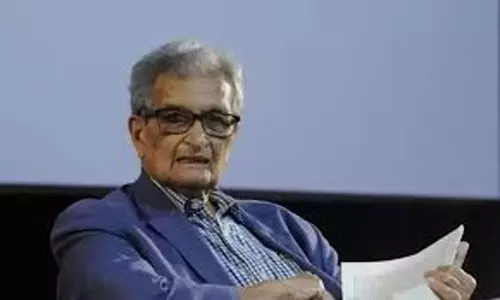
UD identifies a special protein, which makes it possible to treat Parkinson's disease
text_fieldsNew Delhi: University of Delhi in partnership with McLean Hospital, Boston has now identified a special protein, which makes it possible to treat Parkinson's disease (PD).
A research group led by Prof Rawat of the Department of Chemistry, University of Delhi started collaboration with Prof Kim at McLean Hospital, Boston and in 2014 this work was funded by MJ Fox Foundation. A formal MoU was signed between the University of Delhi and the McLean Hospital, Boston, US which resulted in a joint US patent and PCT application.
Parkinson's disease is a neuro-degenerative disorder and over 10 million people worldwide are affected by this with no drug available for its treatment.
The common symptoms of PD are tremor, rigidity, slowness of movement and difficulty in walking, which causes cognitive and behavioural problems such as depression, anxiety, and apathy.
The primary reason for this disease is the death of neuron cells in the substantia nigra (SN), which is located in the mid-brain, and it causes deficiency of dopamine, which plays several important roles in the brain and body
Prof D.S. Rawat of the Department of Chemistry, University of Delhi said, "there are some proteins that are essential for the survival of Dopamine neurons. All it requires is to have healthy dopamine neurons to overcome this disease and Nurr1 protein maintains the healthy dopamine neurons and also protects the neurons from inflammation in case of PD and other neuro-degenerative diseases. So we thought this can be a target for the development of a drug for Parkinson's disease."
"all we needed was a molecule that can activate the Nurr1 protein which in turn can maintain healthy Dopamine neurons" Rawat added.
A massive synthetic programme was initiated at Delhi University and over 650 new compounds were synthesized by the team members namely Mohit Tripathi, Sunny Manohar, Satya V. Pavan, Rohit Kholiya, Shameer and Anuj Thakur.
All these compounds were screened for their Nurr1 activation potential. Interestingly, these compounds activate the Nurr1 protein that is essential for the good health of dopamine neurons, hence reduces the chances of Parkinson's disease. These molecules, along with chloroquine and amodiaquine, which were identified in the initial screening, were experimentally demonstrated to bind and activate the Nurr1 and improve the PD related symptoms in a rat model to a great extent without any toxicity.
The University of Delhi and McLean Hospital have signed a technology transfer agreement with NurrOn Pharmaceuticals, Boston, for the development of these molecules as novel disease-modifying drugs for the treatment of Parkinson's disease.























